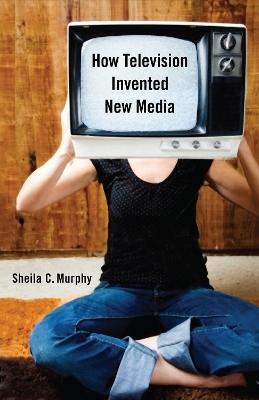
How Television Invented New Media
Seiten
2011
Rutgers University Press (Verlag)
978-0-8135-5005-3 (ISBN)
Rutgers University Press (Verlag)
978-0-8135-5005-3 (ISBN)
Now if I just remembered where I put that original TV play device--the universal remote control . . .
Television is a global industry, a medium of representation, an architectural component of space, and a nearly universal frame of reference for viewers. Yet it is also an abstraction and an often misunderstood science whose critical influence on the development, history, and diffusion of new media has been both minimized and overlooked. How Television Invented New Media adjusts the picture of television culturally while providing a corrective history of new media studies itself.
Personal computers, video game systems, even iPods and the Internet built upon and borrowed from television to become viable forms. The earliest personal computers, disguised as video games using TV sets as monitors, provided a case study for television's key role in the emergence of digital interactive devices. Sheila C. Murphy analyzes how specific technologies emerge and how representations, from South Park to Dr. Horrible's Sing-Along-Blog, mine the history of television just as they converge with new methods of the making and circulation of images. Past and failed attempts to link television to computers and the Web also indicate how services like Hulu or Netflix On-Demand can give rise to a new era for entertainment and program viewing online. In these concrete ways, television's role in new and emerging media is solidified and finally recognized.
Television is a global industry, a medium of representation, an architectural component of space, and a nearly universal frame of reference for viewers. Yet it is also an abstraction and an often misunderstood science whose critical influence on the development, history, and diffusion of new media has been both minimized and overlooked. How Television Invented New Media adjusts the picture of television culturally while providing a corrective history of new media studies itself.
Personal computers, video game systems, even iPods and the Internet built upon and borrowed from television to become viable forms. The earliest personal computers, disguised as video games using TV sets as monitors, provided a case study for television's key role in the emergence of digital interactive devices. Sheila C. Murphy analyzes how specific technologies emerge and how representations, from South Park to Dr. Horrible's Sing-Along-Blog, mine the history of television just as they converge with new methods of the making and circulation of images. Past and failed attempts to link television to computers and the Web also indicate how services like Hulu or Netflix On-Demand can give rise to a new era for entertainment and program viewing online. In these concrete ways, television's role in new and emerging media is solidified and finally recognized.
Sheila C. Murphy is an assistant professor in the screen arts and cultures department at the University of Michigan.
Introduction : how television invents new media
"This is intelligent television" : the emerging technologies of video games, computers, and the medium of television
Is this convergence? : postnetwork television, new media and emerging middletexts
From tube to a "series of tubes" : television in and as new media
Alt-ctrl : the freedom of remotes and controls
Conclusion : television is not new media
| Zusatzinfo | 18 photographs |
|---|---|
| Verlagsort | New Brunswick NJ |
| Sprache | englisch |
| Maße | 140 x 216 mm |
| Gewicht | 312 g |
| Themenwelt | Kunst / Musik / Theater ► Film / TV |
| Geschichte ► Teilgebiete der Geschichte ► Technikgeschichte | |
| Sozialwissenschaften ► Kommunikation / Medien ► Medienwissenschaft | |
| Technik ► Nachrichtentechnik | |
| ISBN-10 | 0-8135-5005-X / 081355005X |
| ISBN-13 | 978-0-8135-5005-3 / 9780813550053 |
| Zustand | Neuware |
| Informationen gemäß Produktsicherheitsverordnung (GPSR) | |
| Haben Sie eine Frage zum Produkt? |
Mehr entdecken
aus dem Bereich
aus dem Bereich
Buch | Softcover (2024)
Lehmanns Media (Verlag)
19,95 €
Eine superschnelle Menschheitsgeschichte des digitalen Universums
Buch | Hardcover (2024)
Heyne (Verlag)
24,00 €


